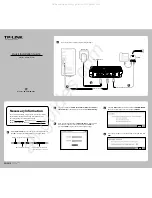
21-9
Cisco IE 3000 Switch Software Configuration Guide
OL-13018-03
Chapter 21 Configuring Resilient Ethernet Protocol
Configuring REP
Switch#
show interface gigabitethernet1/1 rep detail
GigabitEthernet1/1 REP enabled
Segment-id: 2 (Edge)
PortID: 00010019E7144680
Preferred flag: No
Operational Link Status: TWO_WAY
Current Key: 0002001121A2D5800E4D
Port Role: Open
Blocked Vlan: <empty>
Admin-vlan: 100
Preempt Delay Timer: disabled
LSL Ageout Timer: 5000 ms
Configured Load-balancing Block Port: none
Configured Load-balancing Block VLAN: none
STCN Propagate to: none
LSL PDU rx: 3322, tx: 1722
HFL PDU rx: 32, tx: 5
BPA TLV rx: 16849, tx: 508
BPA (STCN, LSL) TLV rx: 0, tx: 0
BPA (STCN, HFL) TLV rx: 0, tx: 0
EPA-ELECTION TLV rx: 118, tx: 118
EPA-COMMAND TLV rx: 0, tx: 0
EPA-INFO TLV rx: 4214, tx: 4190
Configuring REP Interfaces
For REP operation, you need to enable it on each segment interface and identify the segment ID. This
step is required and must be done before other REP configuration. You must also configure a primary
and secondary edge port on each segment. All other steps are optional.
Beginning in privileged EXEC mode, follow these steps to enable and configure REP on an interface:
Command
Purpose
Step 1
configure terminal
Enter global configuration mode.
Step 2
interface
interface-id
Specify the interface, and enter interface configuration mode. The
interface can be a physical Layer 2 interface or a port channel
(logical interface). The port-channel range is 1 to 48.
Step 3
switchport mode trunk
Configure the interface as a Layer 2 trunk port.
















































